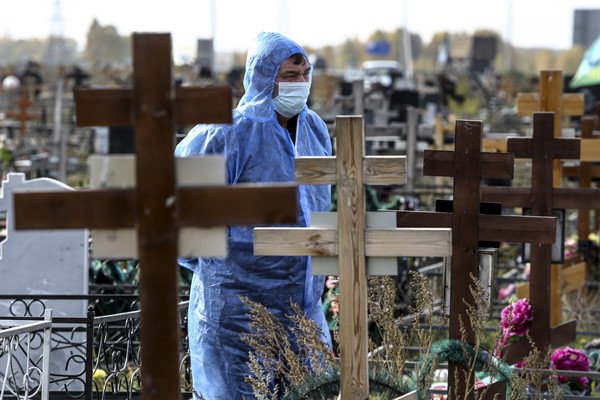In the early months of the coronavirus pandemic, Russian officials seemed to delight in pointing to the country’s relatively low COVID-19 death toll and highlighting what they portrayed as a disastrous response by the West. Russia developed the first coronavirus vaccine, and it reopened its economy before many others. Now, however, as global deaths due to COVID-19 reach their lowest levels in a year, the trend is going in the opposite direction in Russia. In fact, the pandemic response has all but gone off the rails, with a record number of deaths, hospitals straining to keep up and, astonishingly, less than one third of the Russian population vaccinated. What happened?
From the beginning, the Kremlin’s response to the pandemic seemed more focused on geopolitical positioning and domestic image-building than on public health imperatives. I pointed out as much earlier this year, after Russia approved the world’s first coronavirus vaccine without conducting Phase 3 trials, branding it Sputnik V, a name with inescapable Cold War resonance. Sputnik was the first satellite to orbit the earth. When the Soviets launched it in 1957, it was perceived as a historic victory of the USSR over the United States. By giving the same name to its coronavirus vaccine, Russia added to the impression that “the Kremlin viewed the project not as a purely scientific public health endeavor,” but as a key part of its rivalry with the West.
As it turns out, many Russians shared my doubts. It didn’t help that it took President Vladimir Putin months to receive his coronavirus inoculation, and when he finally did, it was behind closed doors. He claimed he took the Russian vaccine, but not everyone believed him.

